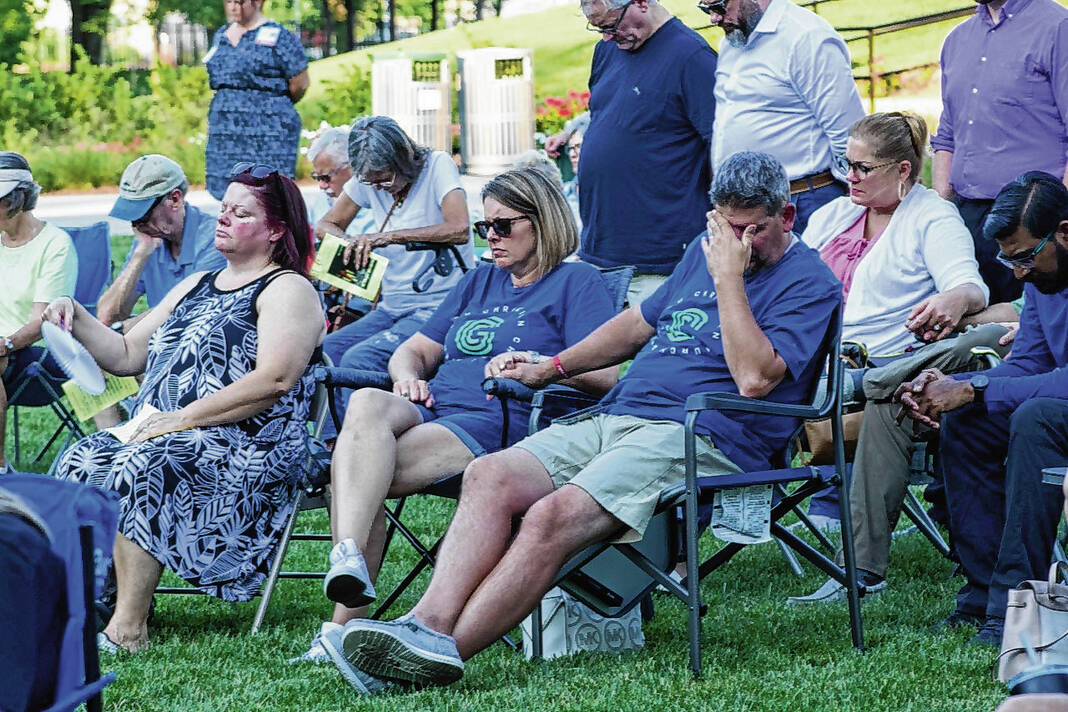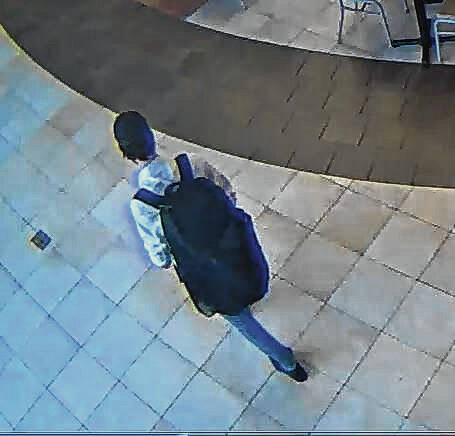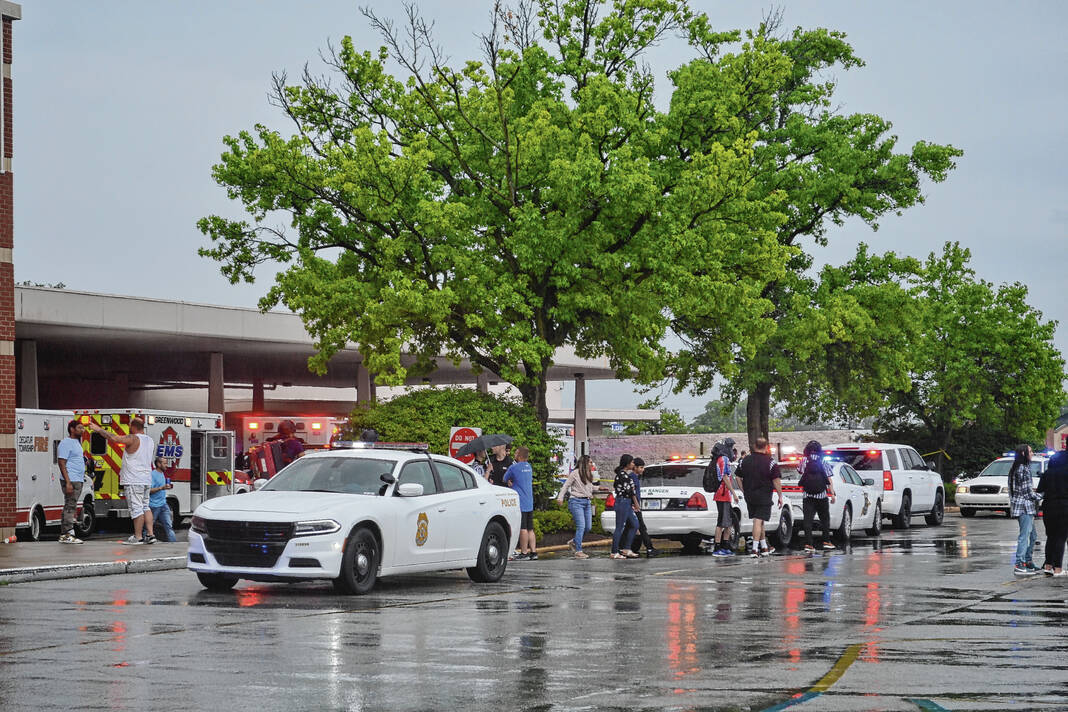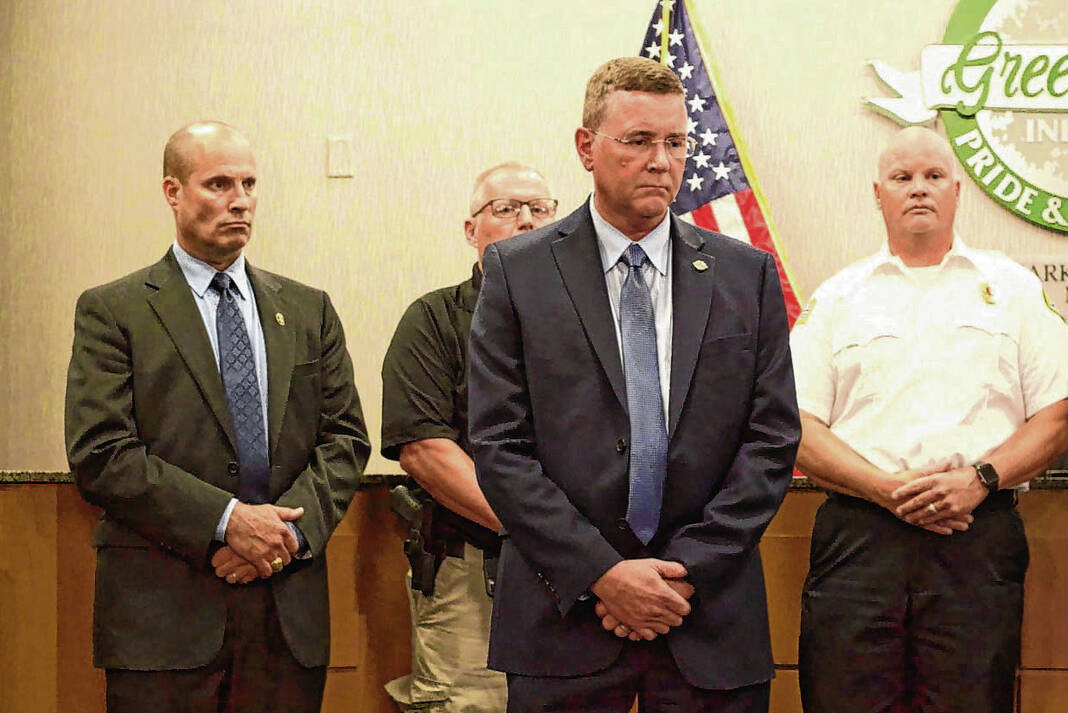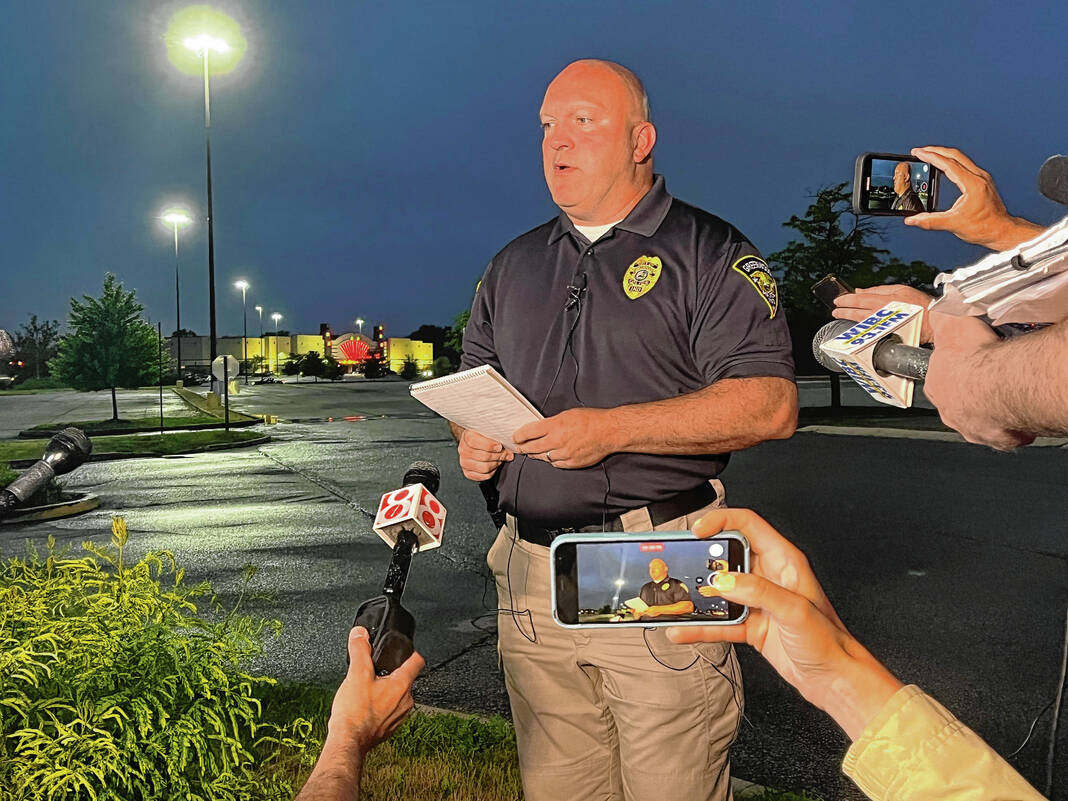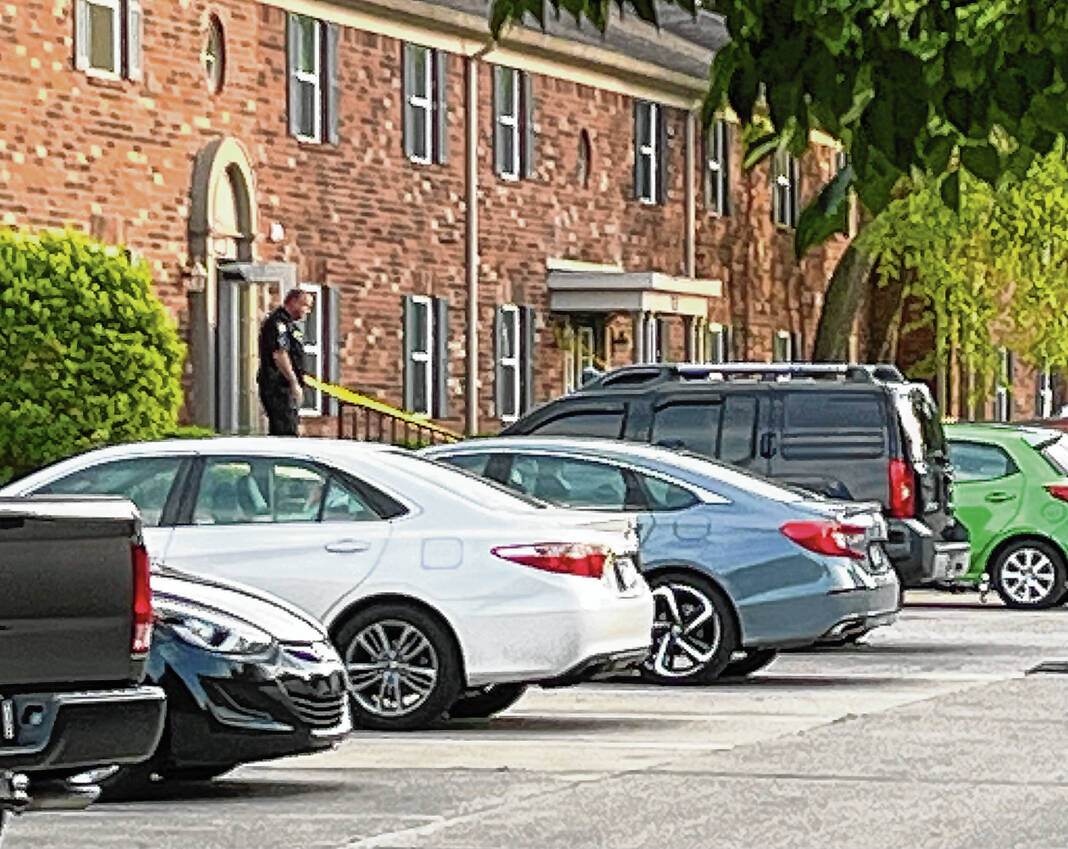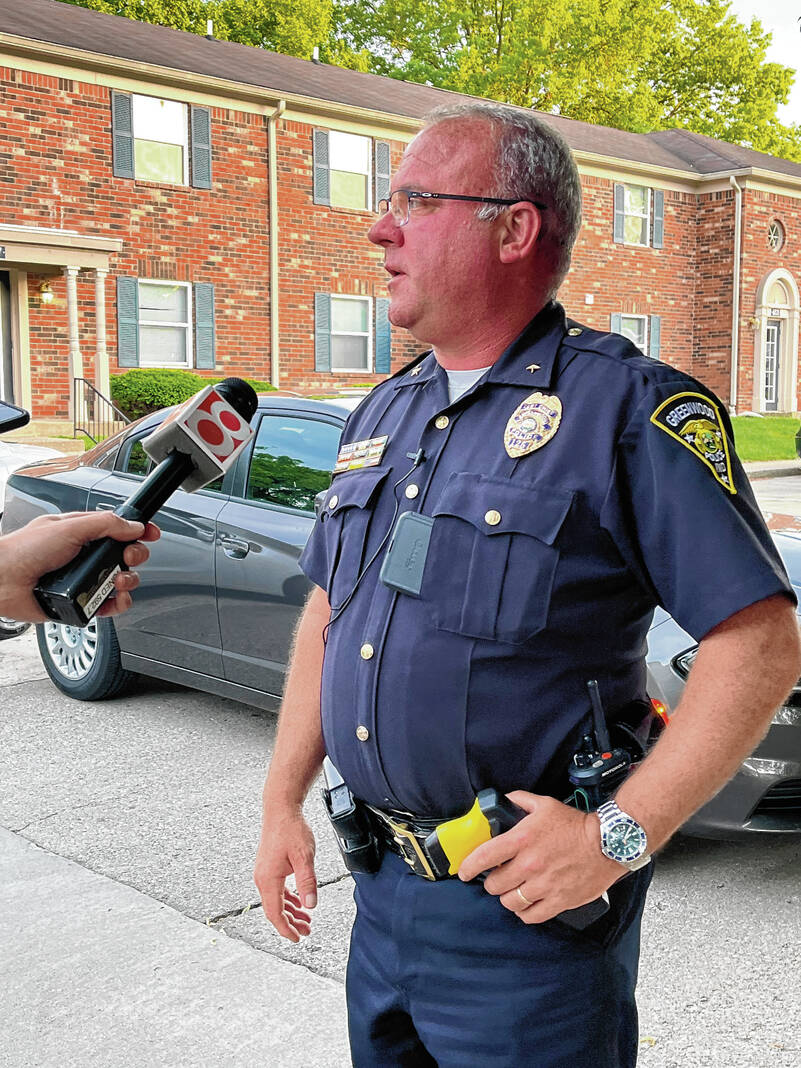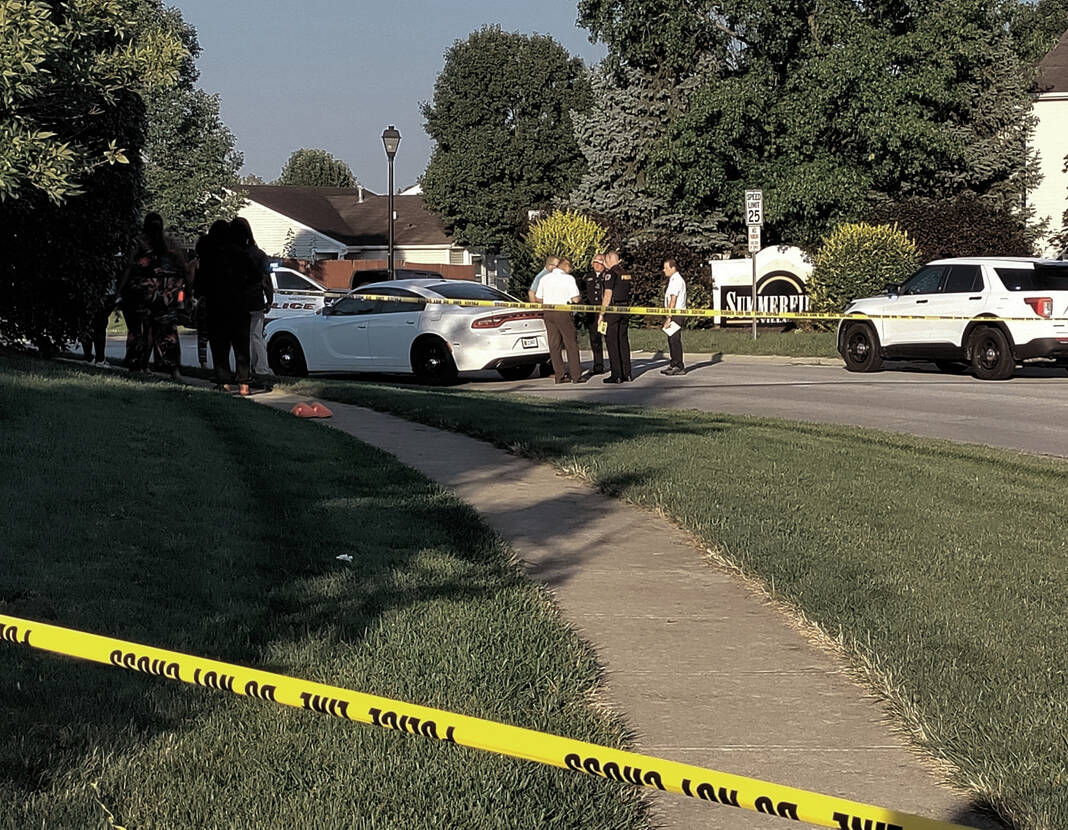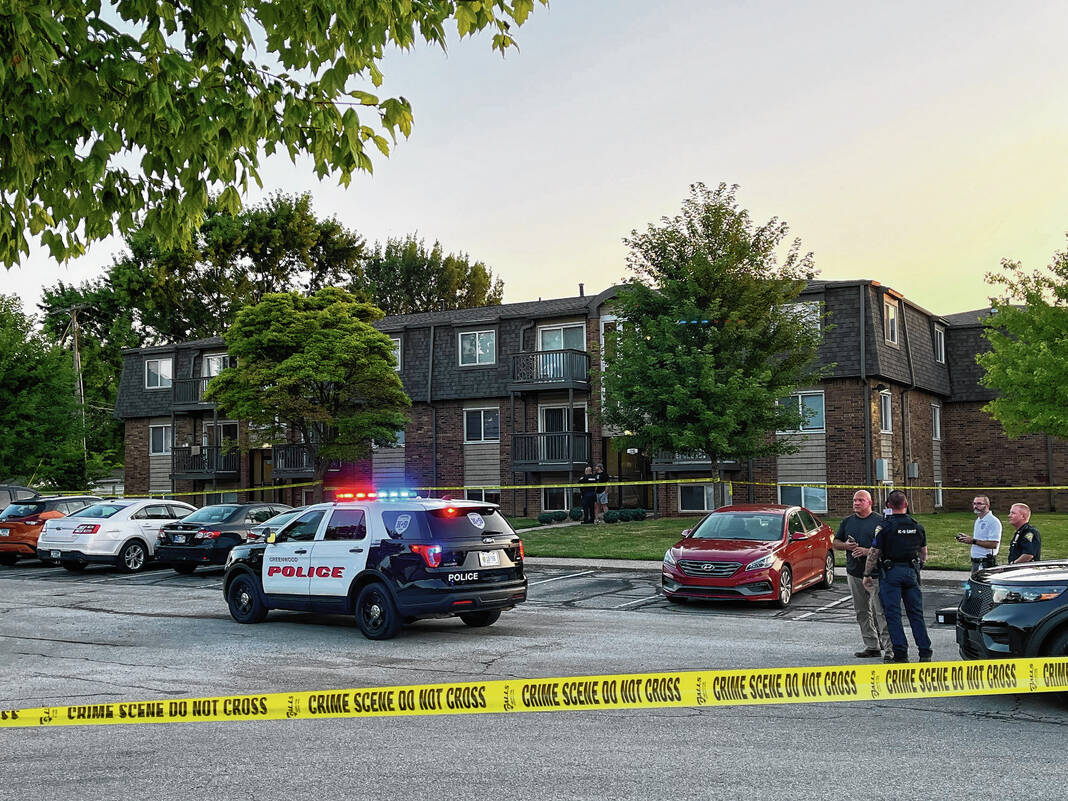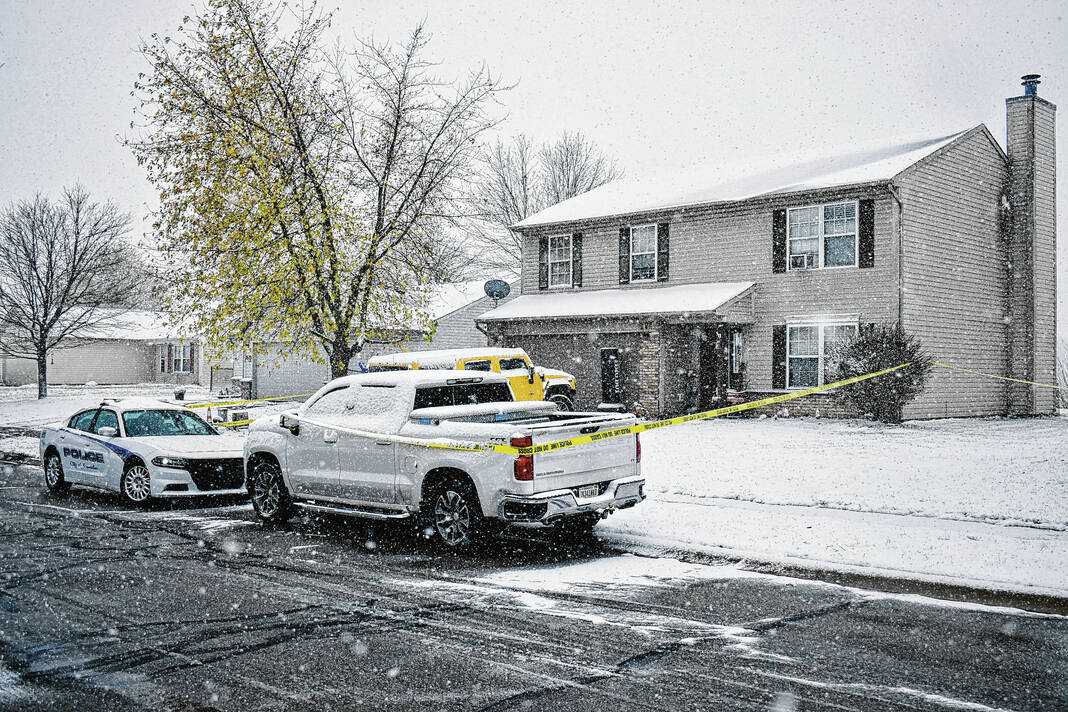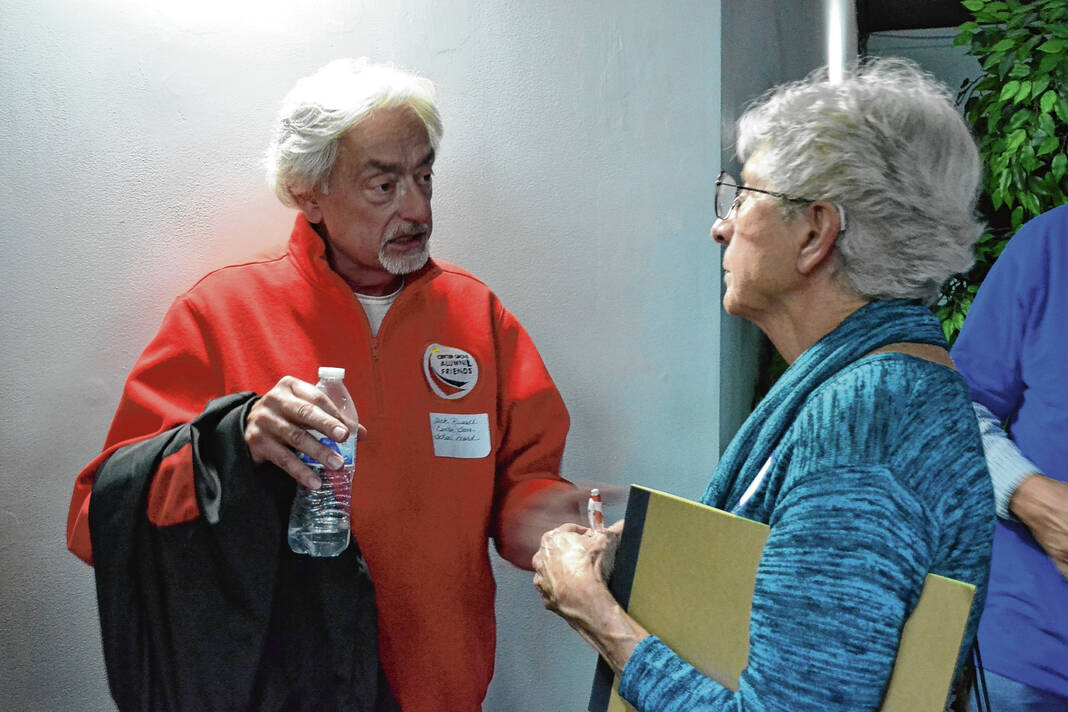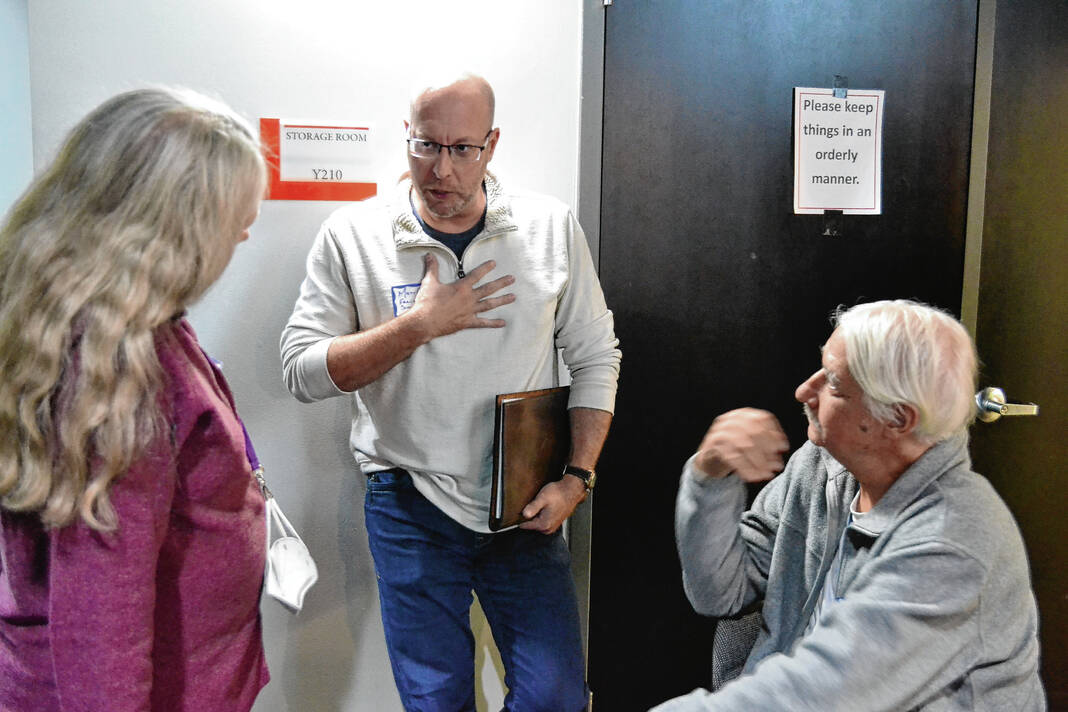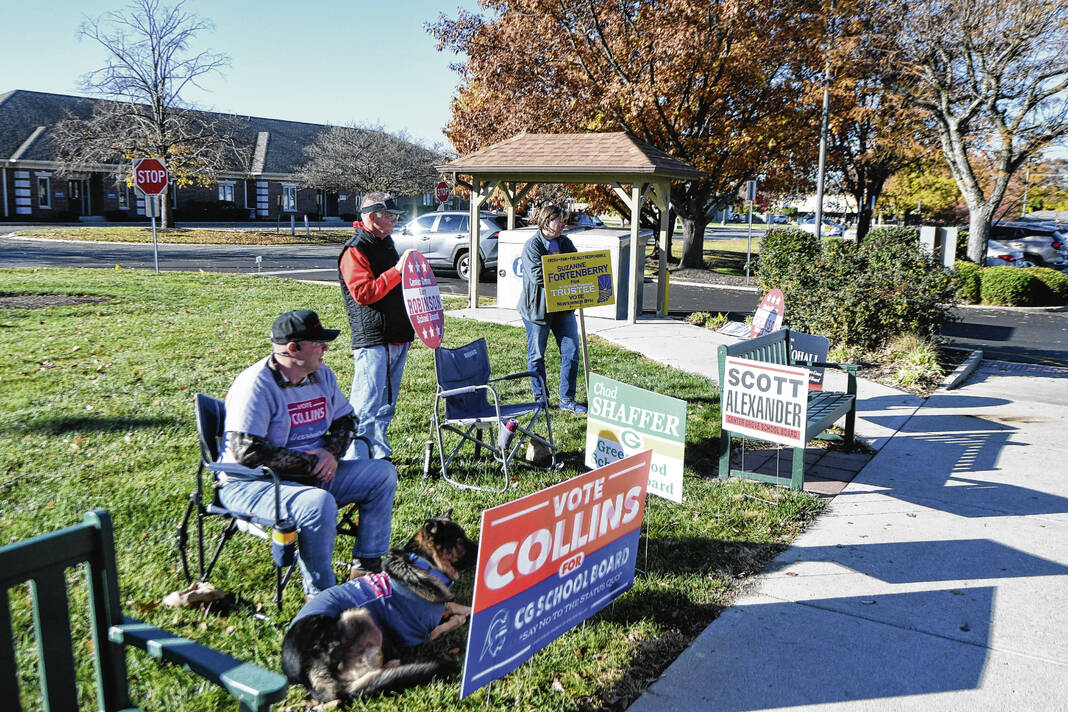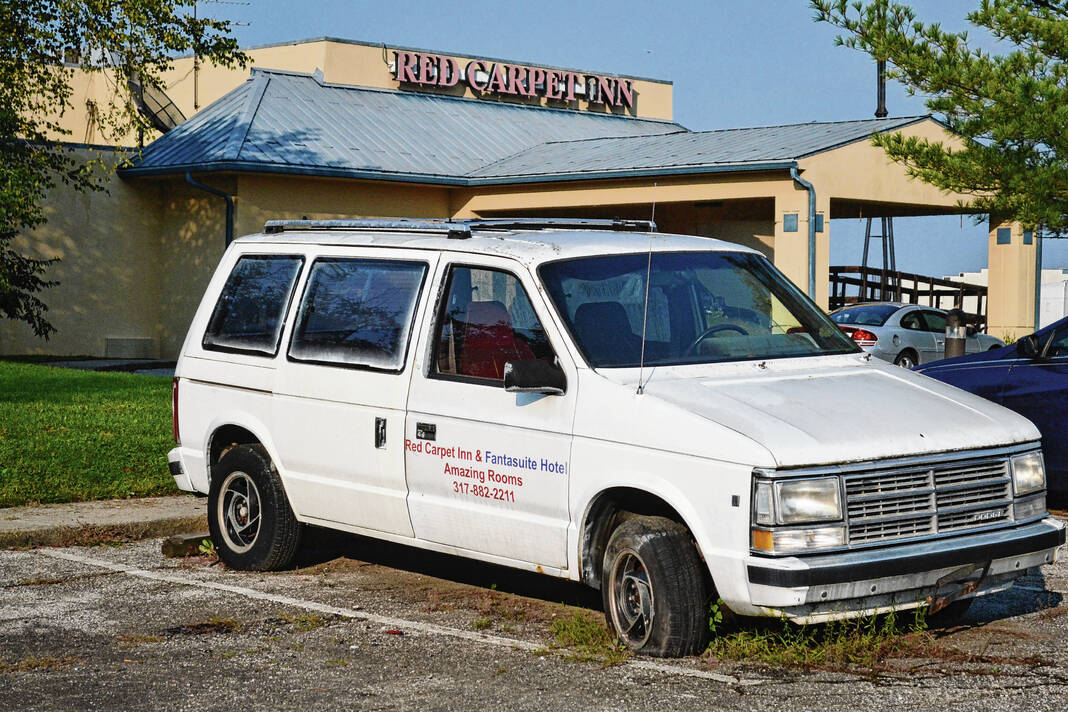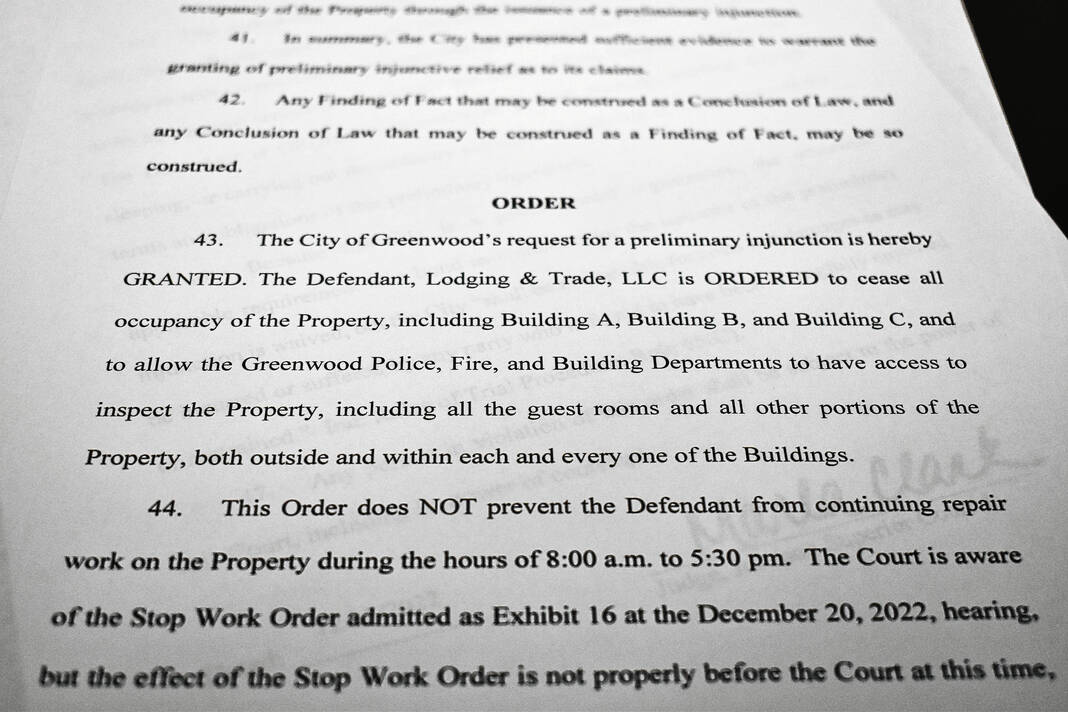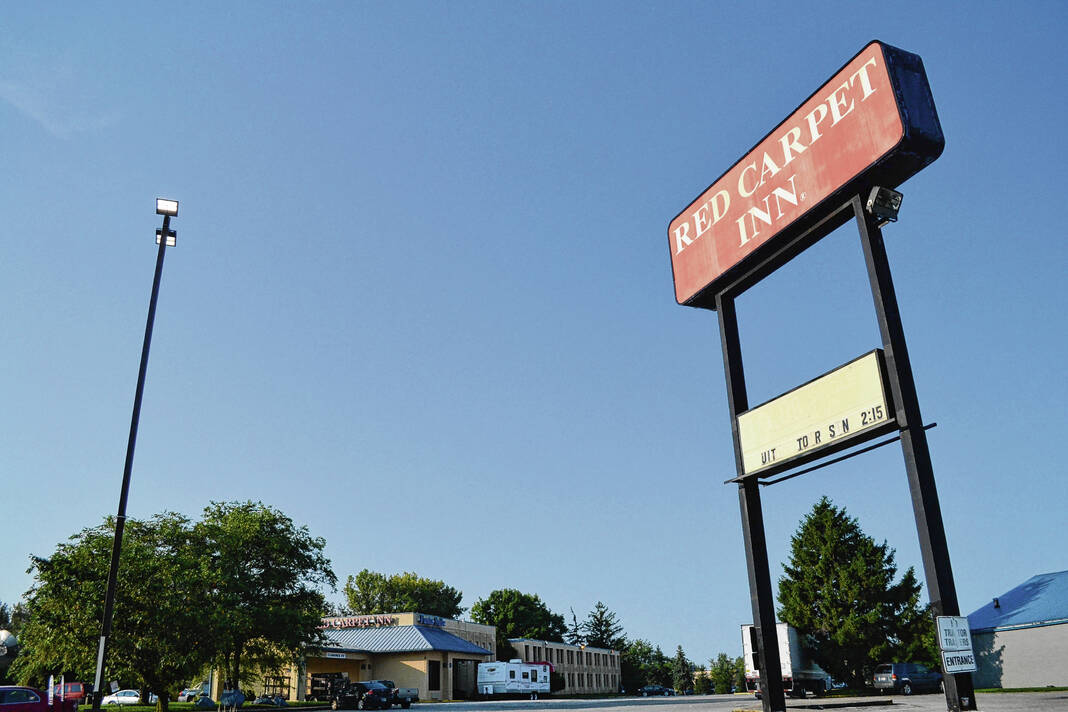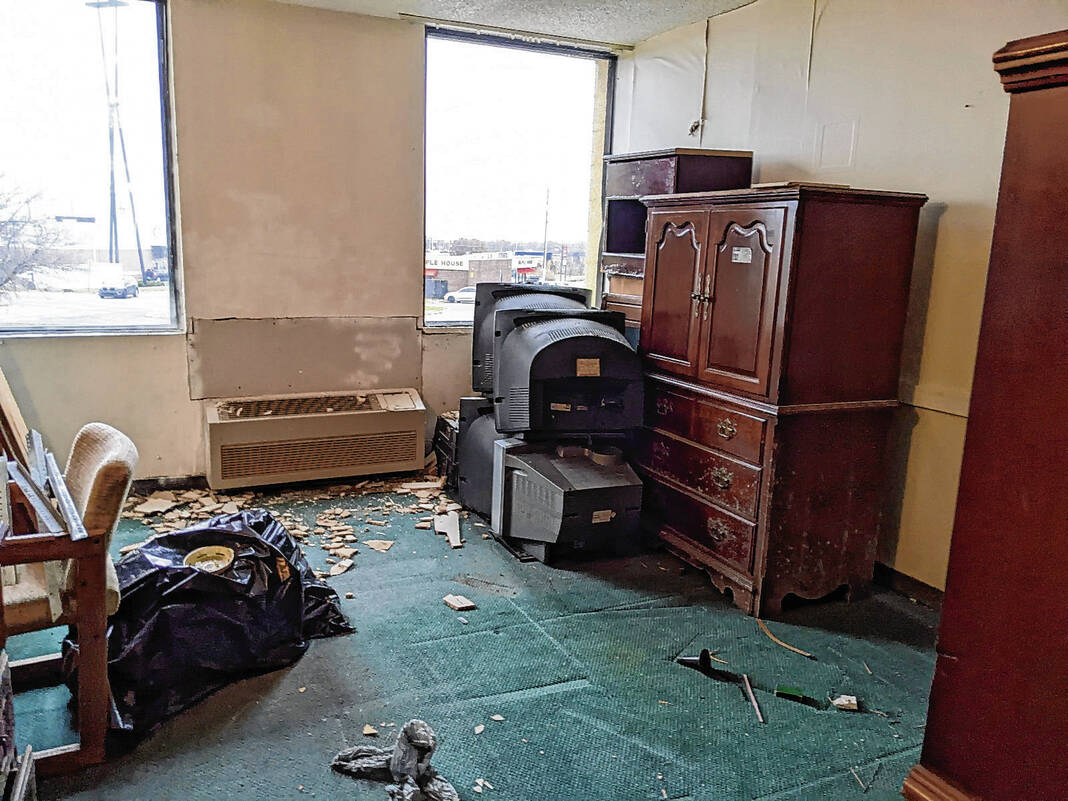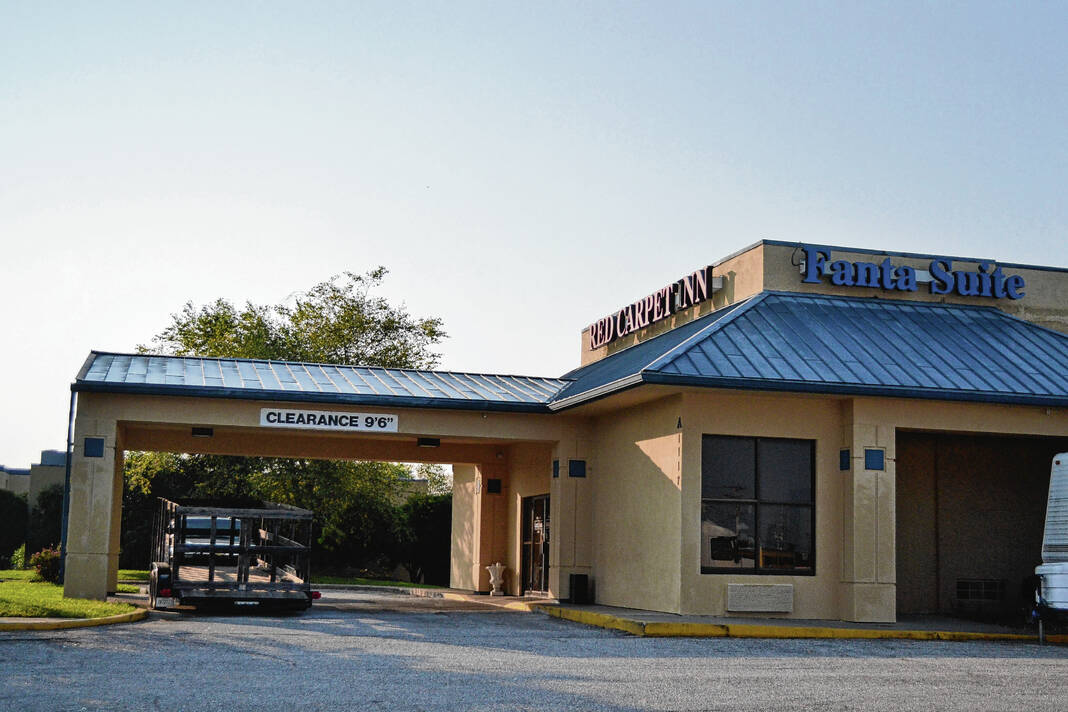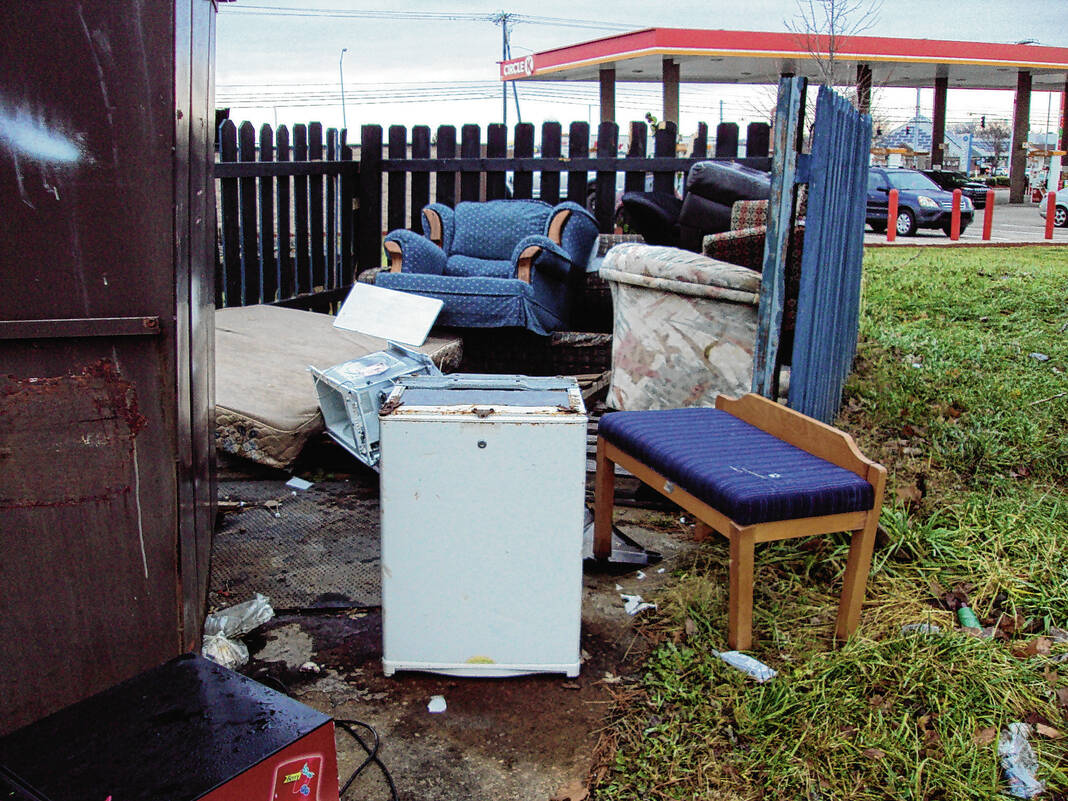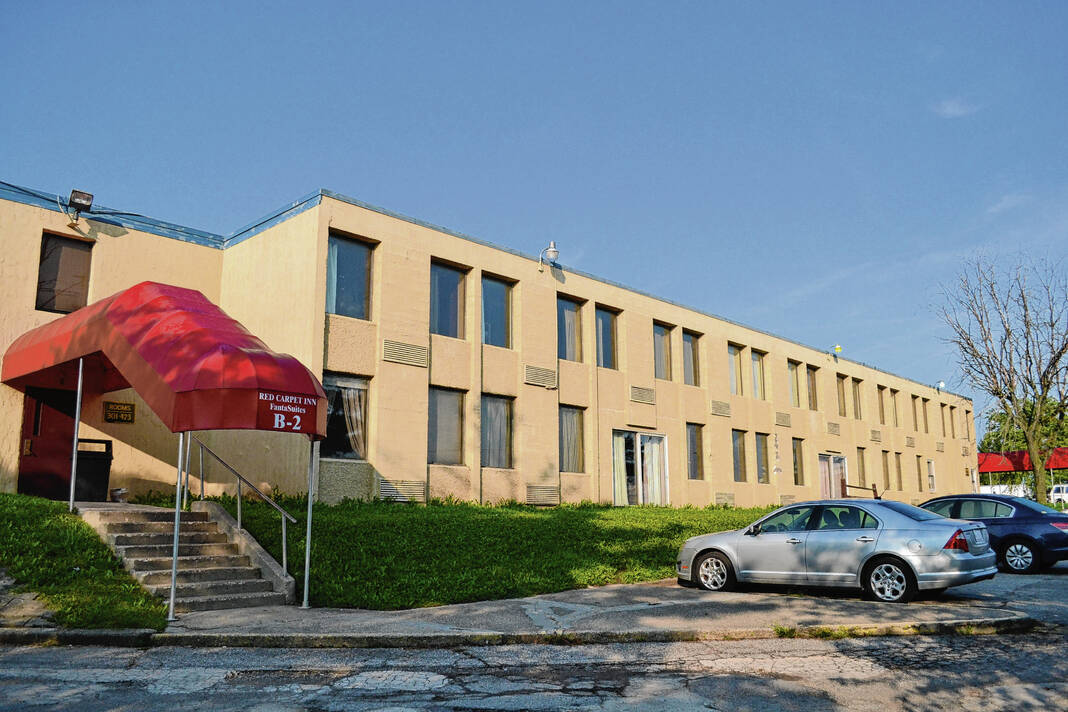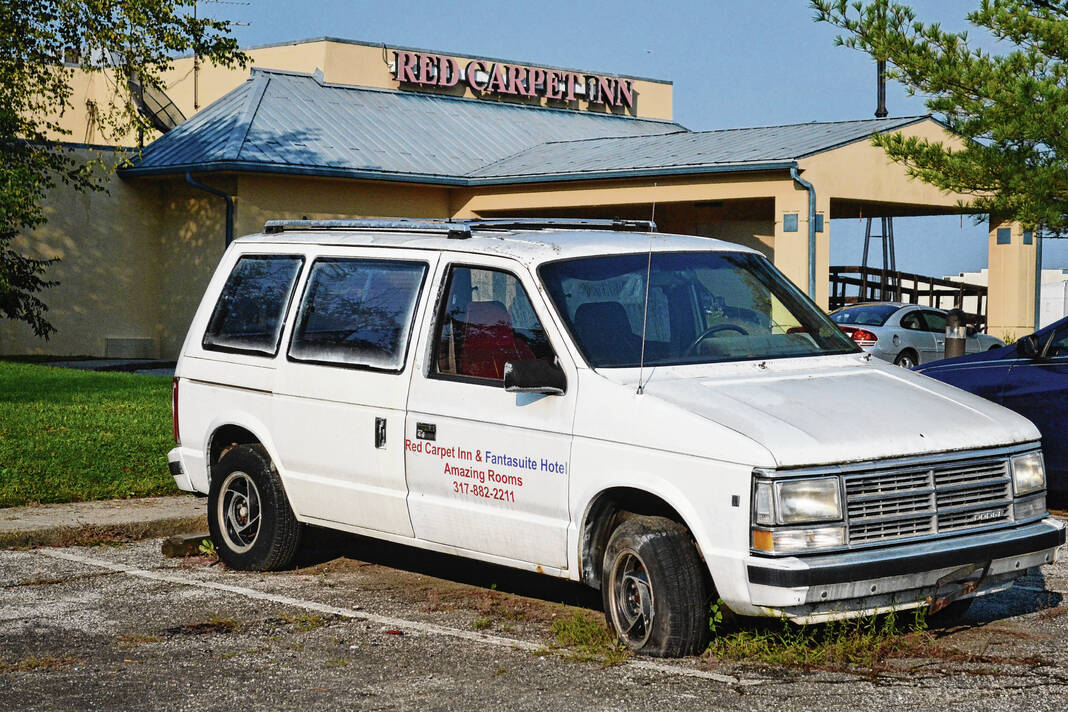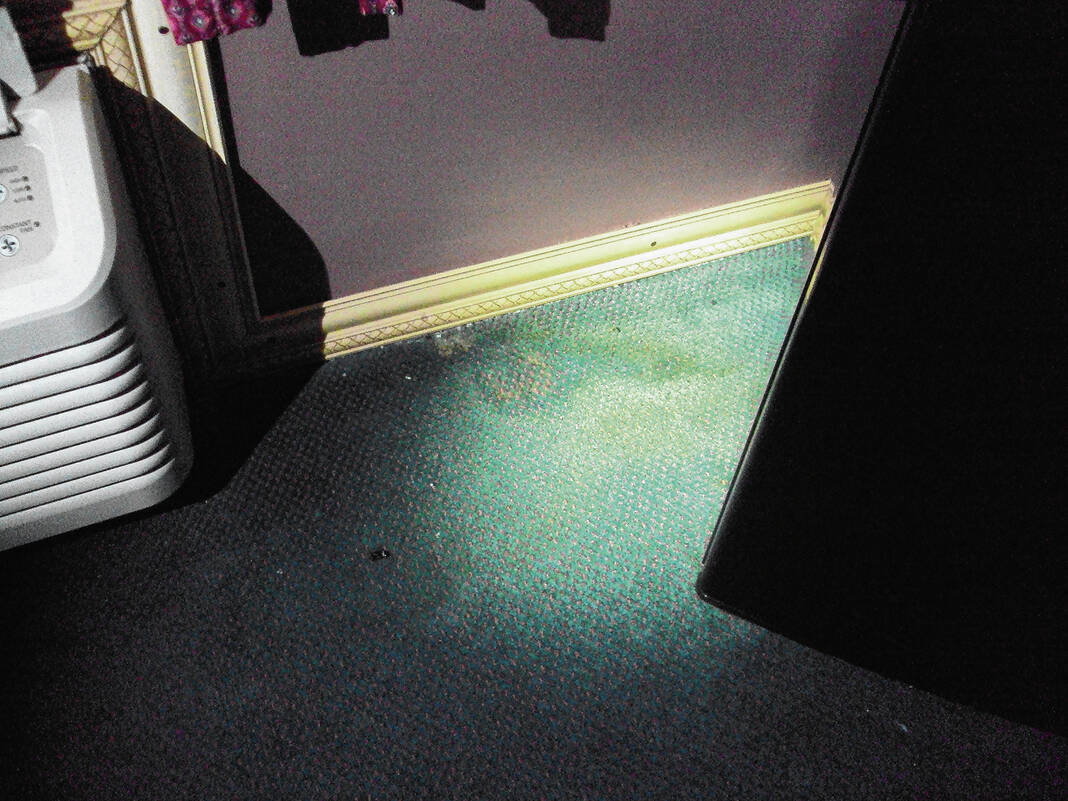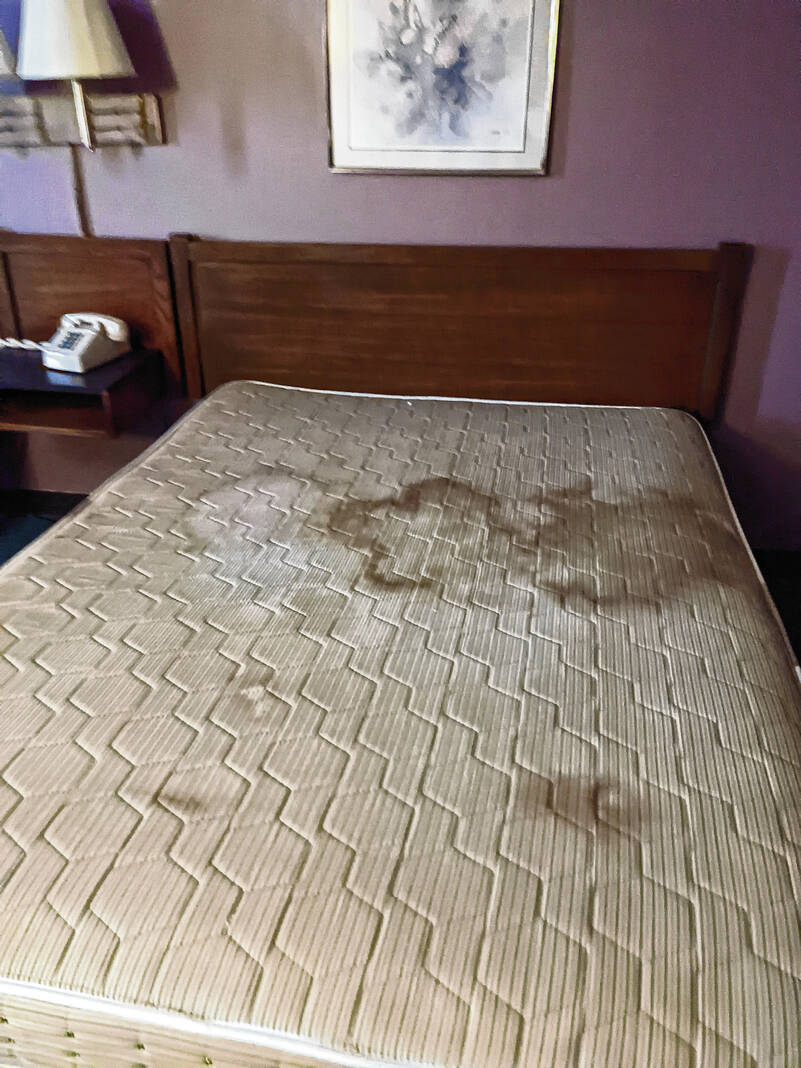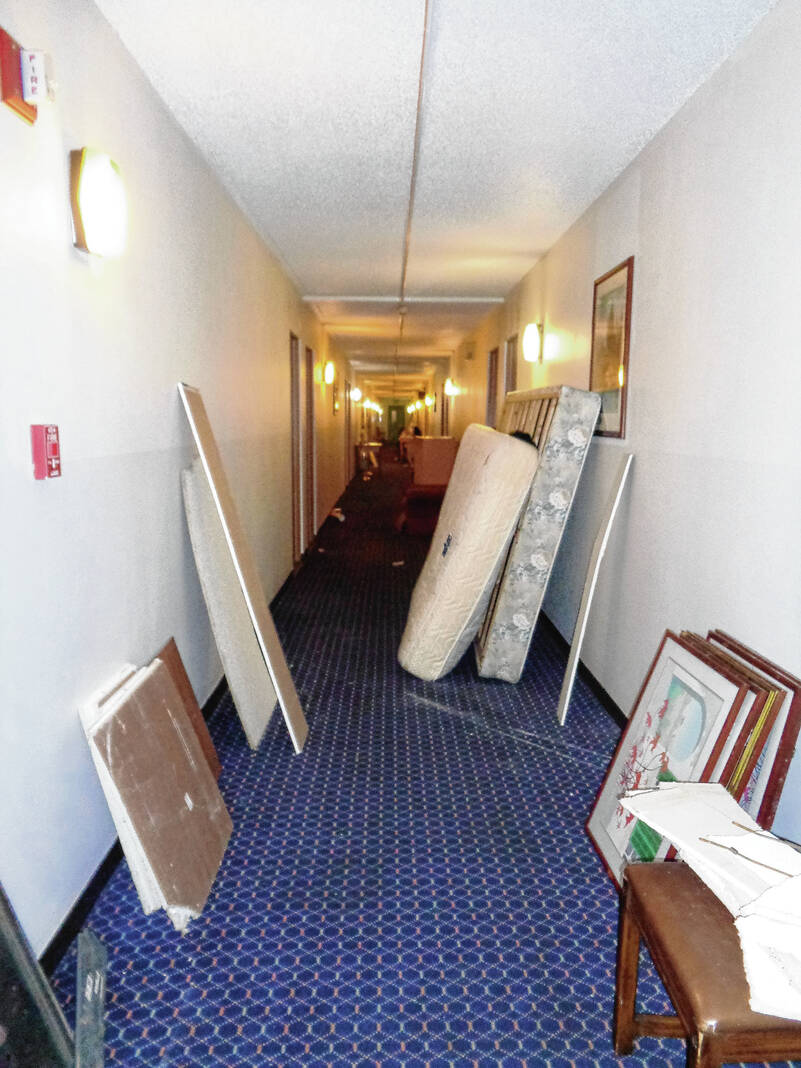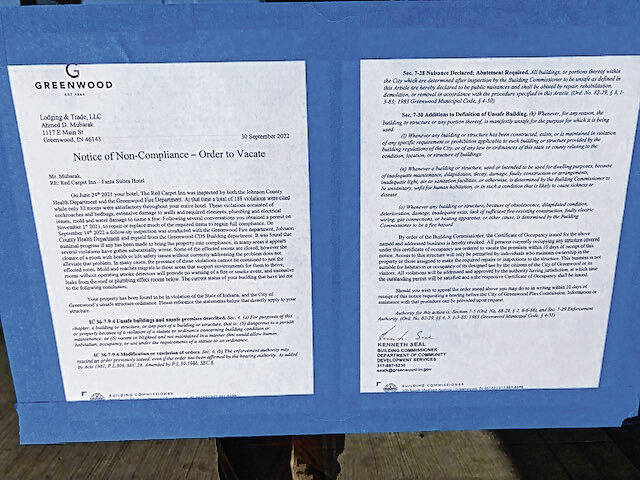1. Mass shootings reach county
On the evening of July 17, the city of Greenwood was shaken to its core after a man committed a mass shooting at the Greenwood Park Mall.
Jonathan Douglas Sapirman, 20, of Greenwood, entered the mall, going into a food court bathroom for an hour to prepare for the shooting. He opened fire around 5:56 p.m., killing three and injuring two others before he was fatally shot by armed bystander Elisjsha “Eli” Dicken, 22, of Seymour.
Indianapolis couple Pedro Pineda, 56, and Rosa Mirian Rivera de Pineda, 37, were killed in the shooting, along with Victor Gomez, 30, also of Indianapolis. Two others, including a juvenile, were injured.
The city came together in mourning after the shooting, as religious leaders, city leaders and residents from Greenwood and Indianapolis came together at the Greenwood Amphitheater for a prayer vigil.
During a December press conference, officials revealed the gunman had no adult criminal history or red flags that would have prevented him from legally obtaining a gun. The FBI and GPD attempted to recover data from his laptop and cell phone but have been unsuccessful so far, said Jim Ison, Greenwood Police Chief. The laptop was found in the oven with butane, which damaged the laptop beyond recovery. The phone was placed in a toilet at the mall prior to the shooting, Ison said. The cell phone was dried out, but it is password locked and the FBI is still trying to determine the phone’s passcode.
Police have been unable to uncover a motive for the shooting so far, as there was no manifesto or note uncovered, nor any posts making any threats to shoot up the mall. The shooter did have a fascination with Nazi Germany and studied extensively about World War II, his family and friends told police. He also posted extensively on Reddit and seemed to be fascinated with and knowledgeable about mass shootings. His posts about mass shootings raised a red flag with one user in 2019 and a tip was reported to the FBI field office in Baltimore. After an investigation, a warrant was served for his IP address at Polo Run Apartments in 2020. However, the FBI was unable to determine who posted the comments because he was using the complex’s free WiFi, Ison said.
2. A year of violence
Violence touched many parts of Johnson County in 2022, with eight people dying as a result of homicides. There was also one attempted murder.
On June 2, police responded to a report of shots fired at the Courts of Valle Vista apartment complex. When police arrived, they found Rachel Elizabeth Cooke, 35 of Greenwood, dead inside an apartment from multiple gunshot wounds. Detectives said Cooke was shot by Justin Qualls, 35, of Greenwood. Cooke and Qualls had a romantic relationship, and both worked at the Johnson County Juvenile Detention Facility. Qualls was tracked to Kentucky, and after being stopped by police, he shot himself with a handgun and was pronounced dead on the scene, police said.
Another fatal shooting in Greenwood took place on July 19, two days after the mass shooting at the Greenwood Park Mall killed three. Jason Grider, 48, of Greenwood was shot following a fight with several juveniles at Westminster Apartments and Townhomes on July 19. He was transported to an Indianapolis hospital where he was pronounced dead, according to police. The investigation remains ongoing, and no one has been charged.
About two weeks later in Morgantown, another shooting took place, though no one was fatally injured. Nicholas Robert Saunders, 19, of Elizabethtown, was charged by prosecutors with attempted murder, a Level 1 felony; aggravated battery, a Level 3 felony; and two counts of pointing a firearm at another, a Level 6 felony, for an incident that took place on Aug. 7. Prosecutors say Saunders allegedly shot a Morgantown man multiple times non-fatally. The investigation led detectives to different locations around Central Indiana before they were finally able to locate Saunders, Sheriff Duane Burgess said.
On Aug. 25, a Clark-Pleasant student was shot and killed at a Greenwood bus stop over a theft dispute. Temario Kendall Stokes Jr., 16, of Greenwood, was allegedly shot by Tyrique Sevein Radford El, 18, also of Greenwood, while waiting for the bus near his home. In an interview with police hours after the shooting, Radford El allegedly admitted to shooting Stokes, according to court documents.
In mid-November Jennifer L. Lewis, 47, of Franklin, was found dead with a single gunshot wound at her home on Nov. 12. Police initially were investigating the incident as suicide, but the manner of death was determined to be homicide, officials say. Lewis’s live-in boyfriend of 21 years, Johnathan Z. Baker, 49, of Franklin, has been questioned in connection with the death, though no criminal charges have been filed.
Nearly two weeks later, an Edinburgh man was fatally shot on Thanksgiving Day. Wayne E. McGeorge, 49, was shot once in his abdomen at a home on the Bartholomew County side of Edinburgh. Damion Bryant, 20 of Edinburgh, was arrested on a charge of murder charge in connection with the shooting, which stemmed from a family fight, court documents say.
The most recent homicide investigation in Johnson County began on Dec. 15 in Bargersville. The body of Angel Luna, 19, of Indianapolis, was found near a pond by Aspen Trace. Luna died of multiple gunshot wounds, the Johnson County Coroner’s Office said. Luna had previously been reported missing to the Indianapolis Metropolitan Police Department on Nov. 22 — his 19th birthday. Bargersville Police are conducting the homicide investigation, which is ongoing.
3. Inflation impact felt locally
Inflation impacted wallets all over the globe and here in Johnson County. Experts say inflation was triggered by after-effects of the pandemic, such as the infusion of cash from federal relief bills, pent-up demand and supply chain problems. The inflation rate peaked at 9% in June and as of November, which is the most recent data available, the inflation rate was 7.1%. The rate last month continued a downward trend that began in the summer.
Locally businesses were forced to raise prices and in some cases wages. Local nonprofits struggled more this year to get adequate donations as donors were more strapped for cash amid inflation. Particularly impacted were food pantries, as donors were challenged by price increases for food and basic necessities in their own lives.
Inflation challenged people looking for homes and people renting as both the prices to rent an apartment in Johnson County and the interest rate on mortgages increased this year. As a result, renters became more challenged to find affordable housing and homes are staying on the market for longer than they have for several years.
Inflation caused issues for local governments and schools in Johnson County, as materials to complete infrastructure projects are more expensive. Officials had to adjust by scaling back, phasing in or pushing back projects in hopes of better prices later. Next year’s budgets for local governments and the state legislature will also be impacted.
4. School board races turn political
Johnson County had an unprecedented school board election season this year. Of the 29 candidates campaigning for seats on the six Johnson County school boards, 23 ran in contested races. Center Grove Community School Corporation and Clark-Pleasant Community School Corporation had the most sought after positions, with eight candidates running for three seats at Center Grove and seven candidates running for three seats at Clark-Pleasant.
The candidates filed a year after parents consistently went to school board meetings in droves to share their concerns about mask mandates and Critical Race Theory being taught in classrooms, even though it is primarily taught in law school. Some of those same issues garnered the attention of a controversial group, Purple for Parents of Indiana, which endorsed two candidates at Clark-Pleasant, two candidates at Center Grove and one running for a seat on the Franklin Community School Corporation board, which the group rescinded because the candidate supported social emotional learning.
All five candidates who received an endorsement from Purple for Parents were challengers, and four of the five candidates lost their election bids, with the exception of Linda Polesel, who, along with incumbent Kent Beeson, defeated incumbent Craig Koch for Pleasant Township seats on the Clark-Pleasant Board of Trustees.
Despite a push from challenging candidates for voters to unseat current school board members, most incumbents kept their seats. Of the 12 candidates who won contested school board races in Johnson County districts, nine won reelection.
5. Prosecutor race full of twists
Former county prosecutor and superior court judge Lance Hamner ousted incumbent prosecutor Joe Villanueva in the Republican primary.
He won the nomination for Johnson County Prosecutor with a decisive 58% of the vote. He was unopposed in the general election and is now preparing to take office in the new year after being sworn earlier in this week.

Hamner joined the race on the last day of candidate filings and many were surprised that we would step back from his former elected office of judge in a bid to return to the prosecutor’s office.
When Hamner announced his campaign, he said he was disappointed in how the prosecutor’s office has fared in recent years, and said its mission to fairly and effectively prosecute criminals was not being accomplished. The prosecutor’s office has lost an “unacceptably high” number of cases at trial, and is not communicating the way it should with local officers and victims’ families.
His resignation from the judgeship caused a chain reaction which resulted in staffing shake-ups for judge of Superior Court 3, magistrate, court administrator and county attorney as people shuffled offices to fill vacancies.
Villanueva had been running for his first full term in office. He was selected via a 2019 caucus after former prosecutor Brad Cooper was removed from office due to his felony conviction. Villanueva, who was chief deputy prosecutor at the time, won the caucus against five other candidates.
Emotions around the were high, with people who claimed to be helped or harmed by both men’s work in the prosecutor’s office weighing in online and in letters to the editor to the Daily Journal. That contention eventually spilled into real life and an investigation into Villanueva was launched.

An anonymous source reported an audio tape of Villanueva to the Indiana State Police, or ISP, for an investigation into alleged ghost employment. In the weeks leading up to the election, several former employees of the prosecutor’s office told the Daily Journal they had been interviewed in connection with the investigation and shared their experience working for Villanueva. They said he attempted to coerce them into campaigning for him in the caucus to replace Cooper.
ISP’s investigation was likely on some voter’s minds at the ballot box, as the case was not resolved until mid-August, though ISP allegedly was given the tape in December 2021. The special prosecutor assigned to review this case determined the evidence that the ISP investigator gathered was not sufficient to charge Villanueva with any crime, specifically not ghost employment.
Hertel listed factors he considered when making the decision in a document filed in Johnson County Circuit Court, among those are: the probability of a conviction, characteristics of the accused, possible motives of victims/witnesses, age of the alleged offense, recommendations of ISP, doubt about the accused’s guilt and insufficiency of admissible evidence to support a conviction.
From the beginning, Villanueva said he believed the investigation was meritless and politically motivated.
6. Quality of life centerpieces
The county’s cities opened two boons for recreation this year with the Greenwood Fieldhouse and Franklin’s Youngs Creek Park and its centerpiece, the Drivehubler.com Amphitheater.
The fieldhouse opened on May 6 and has expanded indoor sports programming while providing a new avenue for recreation all year round. It is a $9 million redevelopment project the city undertook to give the remaining building at the middle school property new life. Other buildings at the site were demolished in 2019.
The 65,000-square-foot facility offers an elevated indoor running and walking track, batting cages, two multi-purpose turf fields for sports such as soccer or lacrosse, two gymnasiums with basketball or volleyball courts, three indoor pickleball courts and a golf simulator. The city bought the former middle school property for $1.1 million in 2017, as part of the plan to spend money generated from the city’s central Tax Increment Financing (TIF) district.
When residents walk into the fieldhouse, they are greeted with relics of the building’s past — a common theme throughout the building. Parts of the old building have been repurposed and memorabilia from the school were saved to display at the fieldhouse.
Youngs Creek Park, a 15-acre parcel that was decimated by floodwaters three times in 14 years, opened officially in downtown Franklin between Jefferson and Monroe streets on May 20.
Three mayors of Franklin dealt with devastating downtown floods from 2008 to 2017. After the 2017 flood, city officials took action to make the parcel into something that can stand up to nature and improve quality of life, said Steve Barnett, mayor.
The $9 million park was designed with large greenspaces to absorb floodwaters and amenities that are built to withstand flooding. The park boasts a 5,000-seat capacity amphitheater lawn, the city’s largest and most inclusive playground, the city’s only splash pad and the first pickleball court to be built in a city park. Plazas were built to accommodate food trucks and farmer’s market vendors.
Throughout this year the new park has brought even larger crowds to festivals put on by Festival Country and Discover Downtown Franklin, it has played host to free concerts, community movie nights and the popular farmer’s market. This year’s Daily Journal Street Party was also held at the park.
The Paris Station Trailhead Bridge over Youngs Creek at the park connects the park to the city’s greater trail system. The bridge, named for William E. and Barbara Paris, connects the park to trails in Greenlawn Cemetery, which in turn, connects to Province and Blue Herron parks.
7. Small town, big progress
Whiteland officials cleared the way for the town’s first mixed-use development at a major gateway to the town.
Earlier this year, the town approved plans for Westfield-based Patch Development to build a nearly 159-acre mixed-use development at the southwest corner of Whiteland and Graham roads.

The property, dubbed Gateway at Whiteland, will include apartments, several small buildings for restaurant and retail spaces, medium-size buildings for commercial flex spaces and a large light industrial building.
Rezoning for the land was approved at the beginning of the year in February, but the development was a topic of discussion in several town meetings all year. Since then, the town entered into a project agreement with Patch, agreeing to finance some of the public infrastructure required for the massive development.
The town council in October approved an approximately $7.25 million bond to Patch Development, in order to pay for infrastructure improvements, such as utilities and roads, for the first phase of construction.
Though the bond was approved, some town officials made it clear they were not 100% on board with this complicated financing, but they were for the project.
Whiteland Town Manager Jim Lowhorn had originally wanted to pull the project because of this financing suggestion. But he eventually came around to it, and thinks the project is good for Whiteland. The town has never had a project like this before, he has said.
Construction is underway for the first phase of Gateway at Whiteland, which includes a 617,316-square-foot speculative industrial building on the back southeastern corner of the property. Patch Development also received a $3.5 million property tax abatement for that area.
8. Local lawmakers vote to ban abortion
In August, Indiana became the first state to approve an abortion ban after the U.S. Supreme Court overturned its landmark 1973 Roe v. Wade ruling, which essentially legalized abortion nationwide. The ban took effect Sept. 15, but has since been put on hold by ongoing lawsuits.
The law makes it a Level 5 felony to perform an abortion except in certain situations. Abortions would be permitted in cases of rape and incest before 10 weeks post-fertilization, to protect the life and physical health of the mother, or if a fetus is diagnosed with a lethal anomaly. Level 5 felonies in Indiana can carry a penalty of one to six years in prison and fines of up to $10,000.
Under the law, abortions can be performed only in hospitals or outpatient centers owned by hospitals, meaning all abortion clinics lose their licenses. A doctor who performs an illegal abortion or fails to file required reports may also lose their medical license.
All Johnson County House and Senate members but Rep. John Jacob, R-Indianapolis, ultimately voted for the bill, they were divided on the strictness of the ban.
Rep. Michelle Davis, R-Whiteland, Rep. Chris May, R-Bedford and Jacob also voted in favor of an amendment that would have removed rape and incest as exceptions to the abortion ban. The amendment failed in a 39-61 vote and was not included in the bill.
Senate President Pro Tem Rod Bray, R-Martinsville, and Sen. Greg Walker, R-Columbus, voted in favor of a version of the law that would have required rape and incest victims to sign a notarized affidavit attesting to the attack. Sen. Jack Sandlin, R-Indianapolis, did not vote on this version of the bill. The House later removed this provision and added a number of amendments before sending the measure back to the Senate.
At the end of the process, all but Jacob were happy that an effort to severely restrict abortion had been made but said more work is needed.
9. Greenwood vs. Red Carpet Inn
Following repeated failed inspections, the city of Greenwood took action to forcibly vacate The Red Carpet Inn and Fanta Suites, 1117 E. Main St., which was behind on making needed repairs.
In June 2021, officials found a total of 188 violations and asked the owner to make repairs. A repair permit was issued on Nov. 1 for the hotel, however, during a follow-up inspection on Sept. 14 of this year, it was found that minimal progress was made to bring the property into compliance and conditions had worsened. The follow-up inspection resulted from increased scrutiny of the hotel following the death of a manager inside the hotel.
In late September, city officials served a notice to revoke the hotel’s certificate of occupancy and ordered the property to be vacated in 10 days. The hotel and the city eventually reached an agreement on Oct. 24 for the vacation for the property within 48 hours, and limited the hours during which repairs could be made, in exchange for a continuance on an Advisory Plan Commission hearing on the revocation.
However, the hotel did not comply with the order to vacate, and on Nov. 4, city officials filed a preliminary injunction to force compliance. Following a contentious public hearing on Nov. 15 that led to the owners of Red Carpet Inn being escorted out by police, the plan commission affirmed the order to vacate the property. They also imposed a $5,000 fine on the hotel.
Still, employees continued to reside at the hotel while it continued to be a health hazard, officials said following an inspection on Nov. 28.
During a four hour preliminary injunction hearing on Dec. 20, city attorneys argued that the hotel’s owner was violating the plan commission order because employees making repairs to the hotel continue to occupy it. Attorneys for the hotel argued that the workers stayed in order to make repairs and to provide security. It was also revealed in testimony that the hotel had allegedly refused an attempt for an inspection on Dec. 20, city officials said.
Johnson County Superior Court 4 Judge Marla Clark ultimately granted the city’s request for an injunction on Wednesday, ordering the employees who reside at the hotel to vacate it and ordering the hotel’s owner, Ahmed Mubarak, to allow city inspectors access to inspect the entire property. However, it was unclear Friday whether the hotel had yet complied, officials said.
10. Trafalgar’s troubles boil over
Trafalgar’s government had a rocky year.
In May, the Southern Comfort Cafe, located in the former Indian Creek Elementary School on Pearl Street in Trafalgar, was shut down by the state Fire Marshal for not having a working fire protection system.
But the owner, James Lochard, denies the violations and says town officials intentionally ran him out of Trafalgar because they didn’t like him. Town officials also alleged he was violating his zoning variances for the restaurant building. Lochard and his family also lived in the old school while running the restaurant.
The Trafalgar Town Council voted on May 19 to allow the town board of zoning appeals to revoke Lochard’s zoning variances, if he was able to get the fire issues resolved. Lochard was unable to remedy the problems with the building, and closed the restaurant permanently this summer, and moved out. He and his wife now run a business in Franklin.

Internally, the town council is in another dispute. In November, town council member Jeff Eisenmenger was accused by at least three other members of the town council of violating zoning codes by allowing people to live in commercial buildings. The town issued him two zoning violation letters for two of his properties.
Eisenmenger has also been called by the other members a “hypocrite” and “deceitful” for violating town codes while sitting on a council that creates and enforces laws.
He mostly denies the allegations against him, and believes the town council is politically targeting him for zoning violations and other issues, despite others in town doing the same as him. But he did admit he is in a zoning violation for a commercial property at 100 W. Pearl Street that he is renting it out to someone as a residence.
Other town council members, Jason Ramey and council president Jessica Jones, have said they are not out to get Eisenmenger. They just want him to follow the rules.




